I didn’t read much during the first half of the year. Trying to finish up my own novel left me so exhausted, and at one point, so repelled by the creation of fiction that I could barely even look at a book. Which all seemed very much like something out of O. Henry: I’d started writing fiction because I love to read it and yet found myself unable to read because of what I was writing.
Funnily enough, the book that broke this curse was Enchantments: A Modern Witch’s Guide to Self-Possession by Mya Spalter. I picked it up because I aspire to project the appearance of self-possession—fake it until you make it, as they say. It’s a short book designed to remind its reader just how much power our intentions, habits, and rituals assert in our lives. I’m at my most functional when I’m fully engaged with this fact.
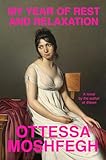 I read My Year of Rest and Relaxation by Ottessa Moshfegh, and the idea of taking a full year off from my own life to sleep was so appealing that it made me a little worried. At the time, I was feeling exhausted from writing, from work, from the news, from the bizarre way that time seemed to behave in 2018—somehow the beginning of the year feels like it was an eon ago. And yet, I don’t feel that I’m allowed to waste my own time, which makes me wonder if I suspect it doesn’t really belong to me.
I read My Year of Rest and Relaxation by Ottessa Moshfegh, and the idea of taking a full year off from my own life to sleep was so appealing that it made me a little worried. At the time, I was feeling exhausted from writing, from work, from the news, from the bizarre way that time seemed to behave in 2018—somehow the beginning of the year feels like it was an eon ago. And yet, I don’t feel that I’m allowed to waste my own time, which makes me wonder if I suspect it doesn’t really belong to me.
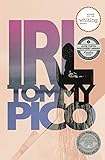
 I read two books of poetry this year, the first of which being Maps by John Freeman. As you might be able to tell from the title, it’s a strongly setting-oriented collection, and the focus on location was pleasantly grounding for me, even when the poems dealt with violence, grief, and other difficult subject matter. The second book was a re-read: IRL by Tommy Pico, who has been my closest friend for the last decade and a half. I revisited this book because I miss him—for the first time since we met we are no longer living in the same city; his departure was a quietly cataclysmic event that dominated the emotional landscape of my 2018. I love this book as I love Tommy, who is just as insightful and funny in person as he is on the page.
I read two books of poetry this year, the first of which being Maps by John Freeman. As you might be able to tell from the title, it’s a strongly setting-oriented collection, and the focus on location was pleasantly grounding for me, even when the poems dealt with violence, grief, and other difficult subject matter. The second book was a re-read: IRL by Tommy Pico, who has been my closest friend for the last decade and a half. I revisited this book because I miss him—for the first time since we met we are no longer living in the same city; his departure was a quietly cataclysmic event that dominated the emotional landscape of my 2018. I love this book as I love Tommy, who is just as insightful and funny in person as he is on the page.
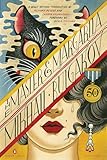 This year, I finally finished The Master and Margarita by Mikhail Bulgakov, which I’ve been reading since 2014. It’s a deeply weird book—the devil and his entourage show up in Soviet Moscow to torture the literati class, and Jesus and Pontius Pilate also appear in a few chapters. I doubt I would’ve kept reading it had it not been recommended to me by some good friends of mine whose taste I really like and respect. There was so much affection for me in this recommendation and so much affection for my friends in my desire to see the book through to the end. Which I’m glad I did. As it turned out, I ended up really liking and respecting the novel as well.
This year, I finally finished The Master and Margarita by Mikhail Bulgakov, which I’ve been reading since 2014. It’s a deeply weird book—the devil and his entourage show up in Soviet Moscow to torture the literati class, and Jesus and Pontius Pilate also appear in a few chapters. I doubt I would’ve kept reading it had it not been recommended to me by some good friends of mine whose taste I really like and respect. There was so much affection for me in this recommendation and so much affection for my friends in my desire to see the book through to the end. Which I’m glad I did. As it turned out, I ended up really liking and respecting the novel as well.
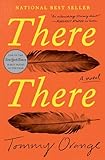

 I read There, There by Tommy Orange, which made me extraordinarily jealous—I don’t know how someone writes so convincingly from multiple perspectives. I feel I will never be able to do this well, so of course it’s a feature of the next writing project I’m planning. Because of this project, which features a con artist, I read Fingersmith by Sarah Waters for inspiration. And I also read Up in the Old Hotel by Joseph Mitchell, because I think I’d like to set it in 1940s New York.
I read There, There by Tommy Orange, which made me extraordinarily jealous—I don’t know how someone writes so convincingly from multiple perspectives. I feel I will never be able to do this well, so of course it’s a feature of the next writing project I’m planning. Because of this project, which features a con artist, I read Fingersmith by Sarah Waters for inspiration. And I also read Up in the Old Hotel by Joseph Mitchell, because I think I’d like to set it in 1940s New York.
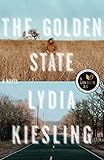 I bought The Golden State by Lydia Kiesling because when I heard her read an excerpt from it, I felt mesmerized by the prose. Kiesling is an arresting writer on the sentence level, which is a talent that makes me as jealous as the ability to write from multiple perspectives. I loved this book because of the way it depicts a mother’s love for her child: unsentimentally, honestly, and intensely. And as a form of love that can be lonely, even though the object of it is always present.
I bought The Golden State by Lydia Kiesling because when I heard her read an excerpt from it, I felt mesmerized by the prose. Kiesling is an arresting writer on the sentence level, which is a talent that makes me as jealous as the ability to write from multiple perspectives. I loved this book because of the way it depicts a mother’s love for her child: unsentimentally, honestly, and intensely. And as a form of love that can be lonely, even though the object of it is always present.
 I read XX by Angela Chadwick, which is also about motherhood. I turned 34 this year, and don’t yet have children but want them, so I found myself thinking about motherhood quite a bit in 2018. In the novel, two women, Rosie and Jules, participate in a clinical trial that allows Rosie to get pregnant through a process called ovum-to-ovum fertilization—meaning that they’re both genetic parents to their child. In the world of the novel, as it would be in the real world, this is highly controversial for many reasons, not the least of which being that participants in the trial can only have female children. I love this premise and Chadwick plays it out through characters that are very emotionally compelling.
I read XX by Angela Chadwick, which is also about motherhood. I turned 34 this year, and don’t yet have children but want them, so I found myself thinking about motherhood quite a bit in 2018. In the novel, two women, Rosie and Jules, participate in a clinical trial that allows Rosie to get pregnant through a process called ovum-to-ovum fertilization—meaning that they’re both genetic parents to their child. In the world of the novel, as it would be in the real world, this is highly controversial for many reasons, not the least of which being that participants in the trial can only have female children. I love this premise and Chadwick plays it out through characters that are very emotionally compelling.
 Earlier this month, I read Convenience Store Woman by Sayaka Murata, as I was coming home from a trip to London to visit my grandmother, who’d had a small stroke earlier in the year (she’s fine). It is a short, light book about a woman who feels that nothing “normal” (marriage, children, professional ambition) is right for her. Instead, she believes that her reason for being is to serve the needs of the convenience store she works in and its customers. I loved this novel because it made me laugh when I really needed it.
Earlier this month, I read Convenience Store Woman by Sayaka Murata, as I was coming home from a trip to London to visit my grandmother, who’d had a small stroke earlier in the year (she’s fine). It is a short, light book about a woman who feels that nothing “normal” (marriage, children, professional ambition) is right for her. Instead, she believes that her reason for being is to serve the needs of the convenience store she works in and its customers. I loved this novel because it made me laugh when I really needed it.

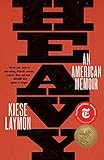 2018 was an excellent year for new books. There were a few others that I remember reading and wholeheartedly enjoying: If You Leave Me by Crystal Hana Kim, Friday Black by Nana Kwame Adjei-Brenyah, A Lucky Man by Jamel Brinkley, Heavy by Kiese Laymon and a galley of Cygnet by Season Butler, which will be out in 2019. I read more than a dozen books in the second half of the year, which is a lot for me because I’m not a particularly fast reader. I read so much because I wasn’t writing, which means my year in reading illustrates something very true about me: I either go all out or I don’t go at all. In 2018, I became inescapably aware of this, and as the year comes to a close, I’m trying to develop better habits that will lead me toward a more balanced 2019. Here’s hoping.
2018 was an excellent year for new books. There were a few others that I remember reading and wholeheartedly enjoying: If You Leave Me by Crystal Hana Kim, Friday Black by Nana Kwame Adjei-Brenyah, A Lucky Man by Jamel Brinkley, Heavy by Kiese Laymon and a galley of Cygnet by Season Butler, which will be out in 2019. I read more than a dozen books in the second half of the year, which is a lot for me because I’m not a particularly fast reader. I read so much because I wasn’t writing, which means my year in reading illustrates something very true about me: I either go all out or I don’t go at all. In 2018, I became inescapably aware of this, and as the year comes to a close, I’m trying to develop better habits that will lead me toward a more balanced 2019. Here’s hoping.
More from A Year in Reading 2018
Don’t miss: A Year in Reading 2017, 2016, 2015, 2014, 2013, 2012, 2011, 2010, 2009, 2008, 2007, 2006, 2005
The post A Year in Reading: Lauren Wilkinson appeared first on The Millions.
from The Millions http://bit.ly/2zPWSQ4

No comments:
Post a Comment